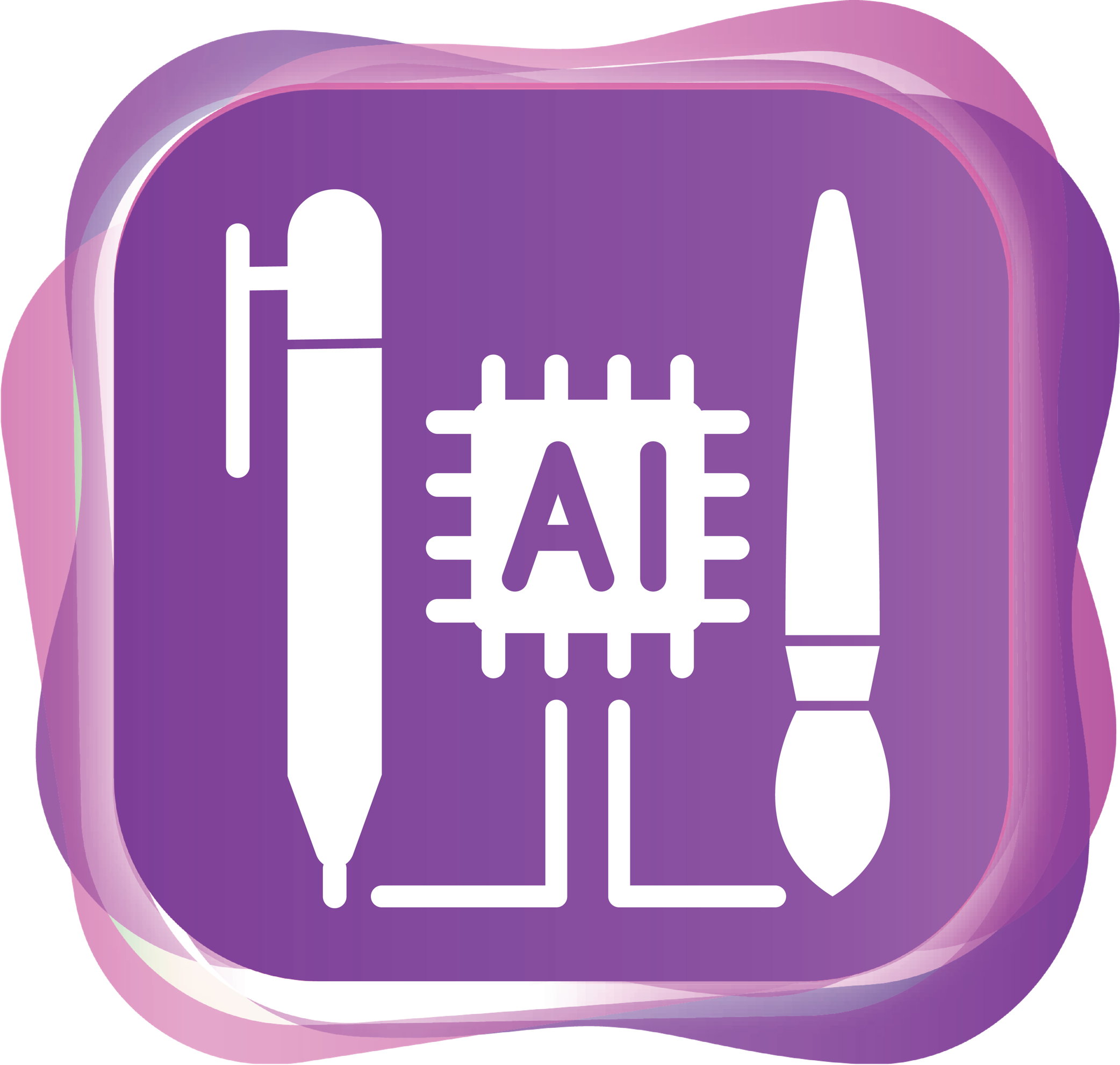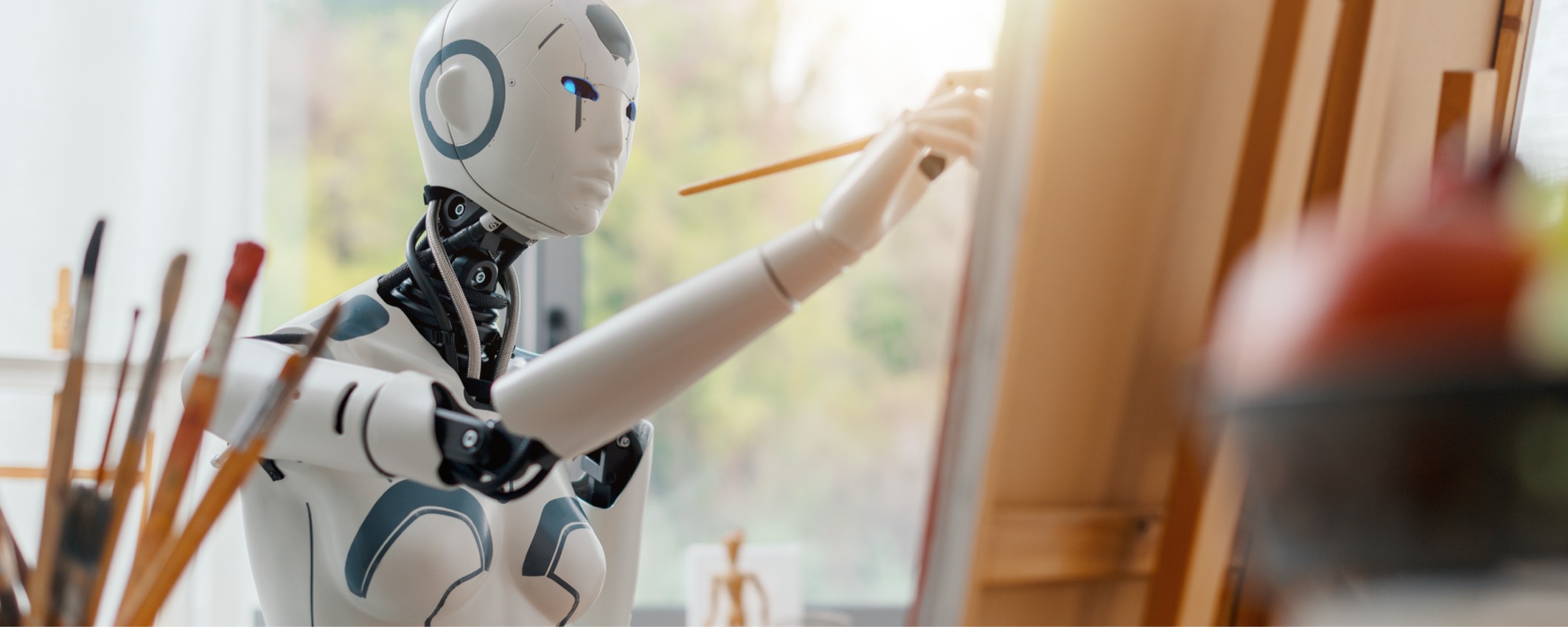 |
CCAI9017 Artificial Intelligence
|
Course Description
Can a machine be an artist, or is true creativity something only humans possess? Scholars have debated the nature of authorship for centuries: Who gets credit for a work? What makes something original? Can art ever be truly independent from the tools that create it? But with the rise of AI-generated music, stories, and paintings, the stakes of this debate have shifted. Can we use the same old tools of analysis to think about authorship, or does AI challenge everything we thought we knew about creativity?
This course explores how technology is reshaping creative expression, raising new questions about originality, ownership, and artistic authority. We’ll trace historical debates over authorship and examine how different cultures and disciplines define creativity. Along the way, we’ll dive into legal and ethical challenges and consider how art movements have responded to new technologies.
Through lively discussions, hands-on projects, and creative experiments, students will challenge assumptions, explore big ideas, and develop new ways of thinking about the relationship between art and technology. No prior experience with AI or art is needed—just curiosity and a willingness to rethink what it means to create.
[There will be an optional field trip to M+ museum during Reading Week.]

Course Learning Outcomes
On completing the course, students will be able to:
- Critically evaluate the impact of AI on cultural production.
- Consider the ethical implications of AI in the arts.
- Apply this understanding of AI and authorship to a wide variety of media.
- Demonstrate fluency in interpretation.
- Develop a deeper understanding of academic writing and communication.
Offer Semester and Day of Teaching
First semester (Wed)
Study Load
| Activities | Number of hours |
| Lectures | 24 |
| Tutorials | 12 |
| Class discussion and debates (incl preparation) | 3 |
| Fieldwork / Visits | 3 |
| Reading / Self-study | 40 |
| Assessment: Assignments | 3 |
| Assessment: Essay / Report writing | 8 |
| Assessment: Project | 12 |
| Assessment: Presentation (incl preparation) | 12 |
| Assessment: In-class test | 3 |
| Total: | 120 |
Assessment: 100% coursework
| Assessment Tasks | Weighting |
| Small assignments | 25 |
| Presentation | 25 |
| Creative productions | 25 |
| In-class test | 25 |
Required Reading
- Barthes, R. (1967). The death of the author. Aspen, no. 5-6.
- Baudrillard, J. (1994). The precession of simulacra. In S. Glaser, & A. Arbor (trans.), Simulacra and Simulation (pp. 1–42). University of Michigan Press. [Originally published in 1981]
- Benjamin, W. (2008). The Work of Art in the Age of Mechanical Reproduction. In M. W. Jennings, B. Doherty & T. Y. Levin (Eds.), The Work of Art in the Age of Its Technological Reproducibility and Other Writings on Media (pp. 19–55). Cambridge, MA: Belknap Press. [Originally published in 1936]
- Foucault, M. (1998). What is an author? In J. D. Faubion (Ed.), Aesthetics, Method, and Epistemology: Essential Works of Michel Foucault 1954–1984 (pp. 205–222). New York: The New Press.
- Hitsuwari, J., & Ueda, Y., Yun, W., & Nomura, M. (2022). Does human–AI collaboration lead to more creative art? Aesthetic evaluation of human-made and AI-generated haiku poetry. Computers in Human Behavior, 139, 107502. From https://doi.org/10.1016/j.chb.2022.107502
- McGuire, J., De Cremer, D., & Van de Cruys, T. (2024). Establishing the importance of co-creation and self-efficacy in creative collaboration with artificial intelligence. Scientific reports, 14(1), 18525. From https://doi.org/10.1038/s41598-024-69423-2
- Shanahan, M., & Clarke, C. (2023). Evaluating large language model creativity from a literary perspective. arXiv preprint. arXiv:2312.03746. From https://arxiv.org/abs/2312.03746
Plus a few selected poems, short stories, and visual art pieces.
Course Co-ordinator and Teacher(s)
| Course Co-ordinator | Contact |
| Ms K.P. Goldstein School of Humanities (Art History), Faculty of Arts |
Tel: Email: kgold@hku.hk |
| Teacher(s) | Contact |
| Ms K.P. Goldstein School of Humanities (Art History), Faculty of Arts |
Tel: Email: kgold@hku.hk |

